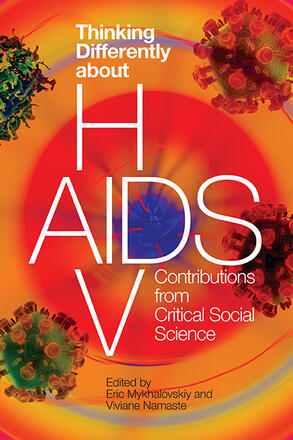
Thinking Differently about HIV/AIDS
Contributions from Critical Social Science
Description
Almost four decades after the discovery of HIV/AIDS, the world continues to grapple with this public health challenge. Thinking Differently about HIV/AIDS explores the limits of mainstream approaches to the HIV/AIDS epidemic and challenges readers to develop alternate solutions, emphasizing the value of critical social science perspectives. The contributors investigate traditions of inquiry – governmentality studies, institutional ethnography, and Indigenous knowledges, among others – to determine what these perspectives can bring to HIV/AIDS research, policy, and programming. Ultimately, this book demonstrates how and why critical social science is necessary for rethinking research and action required to address the epidemic.